This interview was first published on Best Classic Bands in 2015.
Being in just one groundbreaking band is usually enough for anyone. But Richie Furay has gone above and beyond by being a founding member of two.
The stature of the Buffalo Springfield has only grown over the years. Furay was a singer and writer of some of the band’s most memorable songs alongside Neil Young and Stephen Stills during the band’s brief but influential run from 1966 to ’68. Alas, a long-awaited and much-anticipated reunion of its three classic rock principals in 2012 under the Springfield banner (following their appearance at Young’s Bridge School benefit the year before) flamed out after six shows (of what was supposed to be a full tour) when the ever-mercurial Young pulled the plug yet again on another project. They left behind one official release: a live version of “Mr. Soul” available as a legal download. Fans can only hope at some point in the future the three will tour more extensively; an album would be a miracle of answered prayers.
After the Springfield splintered, Furay and Jim Messina (who played bass in the last incarnation of that band) started Poco, one of the first country-rock bands. Over the course of his seven albums with the group they consistently bubbled under breaking through, and were also one of the most charming and dynamic live bands on the American concert circuit.
Furay then made another bid for stardom when music business mogul (and now Hollywood power broker and philanthopist) David Geffen put him together with Chris Hillman of the Byrds and singer-songwriter J.D. Souther as the Souther-Hillman-Furay Band. SHF never quite gelled like the CS&N model they were based on, and after two albums they called it quits.
Related: Our Album Rewind of the first Souther, Hillman and Furay release
But that band did signal a major change in Furay’s life when steel guitarist Al Perkins, a devoted Christian, shared his faith with Richie. Furay and his wife Nancy were separated, and he wanted to preserve their love. He’d also had his longtime Martin acoustic guitar on which he’d written many of his best songs stolen. So Furay made a deal with God in prayer. If he got the guitar back, he would commit to Christianity. Not only was that prayer answered; Richie and Nancy Furay (who he met and married while in the Buffalo Springfield) are closing in on 50 years together.
Today Richie is the pastor of the non-denominational Calvary Chapel in Broomfield, CO, and in 2007 began to lead a new Richie Furay Band that plays both spiritual and secular shows. In 2015, Furay released his first new mainstream album in many years, Hand in Hand, a fine solo disc (likely his best) which both evokes his past and expresses where he is today.
Furay was born on May 9, 1944.
Best Classic Bands: The cut “We Were the Dreamers” immediately reminded me of Paul McCartney’s “That Was Me” – a song taking pride in what you’ve done in the music world.
Richie Furay: The physical part of it was kind of interesting. I had all these little guitar riffs…. I didn’t think I’d go back in the studio again. But of course me and Stephen and Neil and Joe [Vitale] and Rick [Rosas] got together for the Buffalo Springfield reunion. All of a sudden little bits and pieces, whether they be lyrically or music things, things just started to come together.
I had this intro to “We Were the Dreamers” but I couldn’t write any music to it…. Getting together with those guys got the juices going. I got a melody, but couldn’t get any lyrics. I called my manager, and he mentioned Dickie Betts and a few other people. He said “I’ll send them the musical track and see what you think.” The minute he said that I went back in my room and “bingo!” It just started coming out. We were the dreamers.
All of a sudden I had this little picture when Poco was starting out at the Troubadour – just some kids having fun, we’re working at the Troubadour as the house band so we could have a place to rehearse in the afternoons. Then I thought about the genre we were creating. We were creating a brand-new sound, basically. It wasn’t the Beach Boys, it wasn’t the Turtles, it was country rock. I look back on what we were trying to do and what it has become today. Back in the day, let me tell you, it was hard. I never got to the Grand Ole Opry until two years ago when I was asked to given Stephen the Americana Award. That was my dream, to take Poco to the Grand Ol’ Opry. The Burrito Brothers made it, a lot of people made it. We never made it and we started that genre!
Watch Poco perform “A Good Feelin’ to Know”
Related: Furay and his former Poco bandmate Timothy B. Schmit reunited at the Troubadour in 2018
It summed up at least my vision – we were having fun and excited to be doing it. To be able to create something that no one was doing at the time, that’s the story of my career. I’ve been fortunate enough that no one came to me and said “We want you to sound like that guy.” We had dreams of touching people’s lives and bringing two genres of music together.
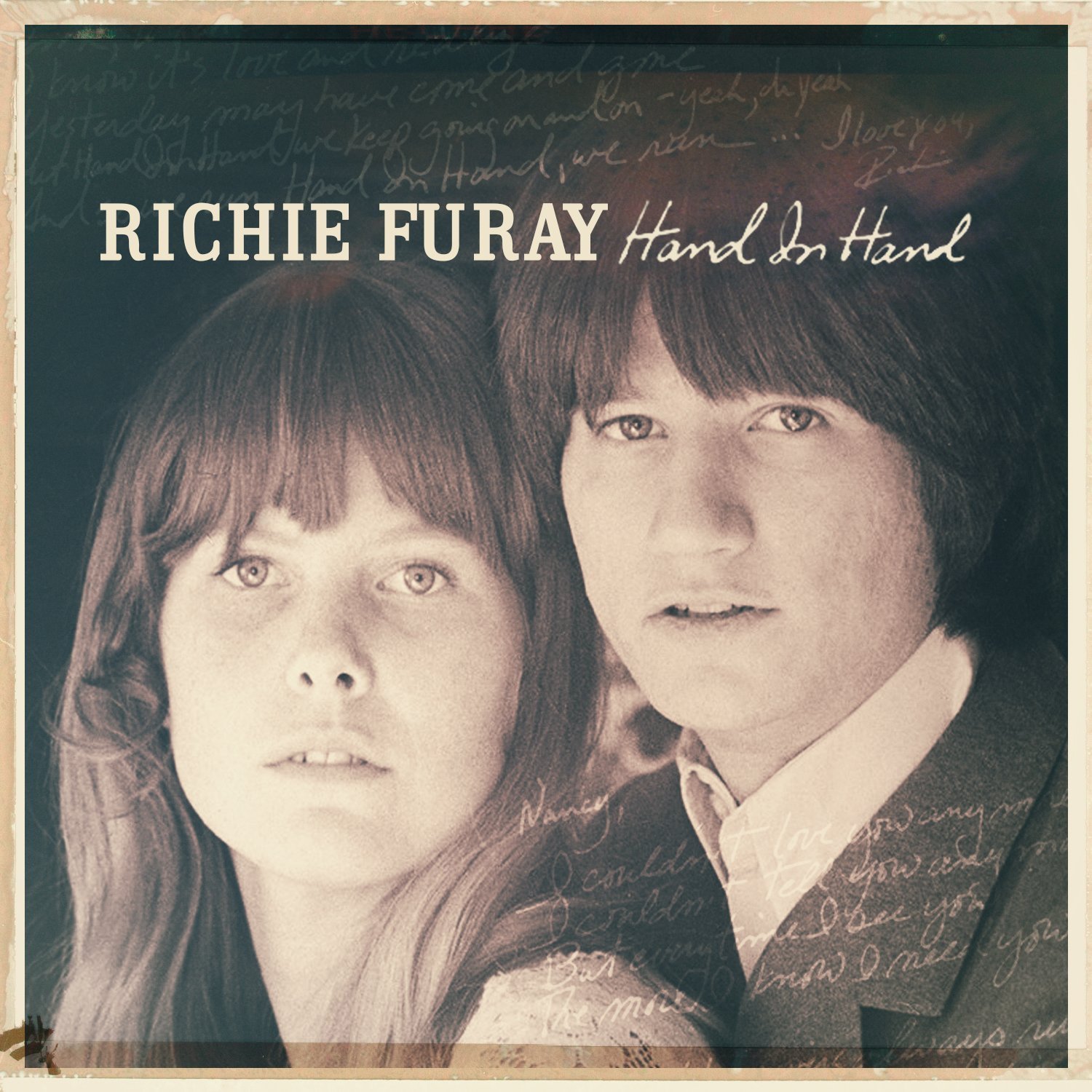 BCB: I like people who grow – maybe “act their age” is a better phrase. I like Springsteen and Paul Westerberg because they do that: writing for grown-ups. You address your musical past, your marriage, things going on in the world. Is that a natural bent for you?
BCB: I like people who grow – maybe “act their age” is a better phrase. I like Springsteen and Paul Westerberg because they do that: writing for grown-ups. You address your musical past, your marriage, things going on in the world. Is that a natural bent for you?
RF: No. Anybody would tell you if you take that little trilogy of songs – “Don‘t Tread on Me,” “Winds of Change” and “Some Day” – people would look at that and say “That’s way out there for him – he’s just this love-song writer. He doesn’t write anything like that.” I think as we grow up you just start looking at things a little bit differently. I was just a love-song writer. I was in love with my wife. We had our ups and downs and I wrote a lot talking about troubled times.
BCB: You mention the trilogy of of songs including “Don’t Tread on Me.” I was afraid with that title it would be something more divisive, but it’s actually a song about compromise.
RF: Listen, I could create more dissension with religion or politics. I’m not big on people who are so politically oriented. I wrote it over the course of two years, walking on my road, having a line come here, a line come there. A thought. Something.
That songs mean you know what? I love this country, I really do. Do we have stuff amiss and wrong? Of course we do. We’re frail human beings in human bodies. We aren’t going to be perfect. But I love this country… yet I see us slipping away because number one, we’re not talking to one another. We’ve become so polarized. That’s my thing – come on, let’s just come together, take a look. We have so much to offer, so much to offer in the world… we don’t have to come down to some level, we don’t have to become a third-world country. We can do things.
BCB: You mesh your faith into the songs without preaching. Artists like U2 and T Bone Burnett also come from a Christian place without preaching. “Don’t Lose Heart” has a keep-the-faith tone that alludes to spirituality without preaching directly. Why did you choose to cover that?
RF: That’s a good observation. I really identified with that song the first time I heard it. A friend of mine, TJ Klay, asked me to come sing on his album. There’s this song, “Don’t Lose Heart.” It’s a Dan Fogelberg song. I had never heard Dan’s version. It would have completely gone over my head. I didn’t grab it. We ended up doing “Run for the Roses” for the Dan Fogelberg tribute album. He had a lot of insights where he’s asking the questions: Is it all worth it? Through all of his struggles… I just really love the song. When you’ve given all you’ve got, sometimes it’s not enough. I’ve certainly been there. I never reached the status of some of my friends and at points it was very frustrating to me.
BCB: How did you get past that? Frustration has handcuffed many artists, including John Fogerty for a while.
RF: I think I got over it when I just dropped out of music in the late ‘80s. My life really took a turn and I learned to put things in focus and accept what I’ve done, who I am and the music that I’ve done. I’ve been successful in many ways, paving the way. I’m not ashamed to say we paved the way for the Eagles, Pure Prairie League and bands that have that country-rock sound. I had to come to terms with it. I’m comfortable with it. When I saw the Eagles documentary that came out not long ago, I thought to myself, “If I had to go through that [struggle and chaos] I could have never done it.” It just wouldn’t have happened.
BCB: Speaking of going through stuff, I know you can’t talk about the aborted 2012 Buffalo Springfield reunion and the canceled 30 shows. Is there any chance we’ll have any release from the nine shows you did in 2011?
RF: All I can tell you is everything’s recorded on audio and there were at least four cameras that shot every show we did.
BCB: How did Keb’ Mo’ end up on your album?
RF: Ah, Keb’. Never met the guy. He was recording next door to us in what used to be a House of Blues in Nashville. He kept coming over to the studio. Every time that song came on he came over. He finally said, “I wanna play on that song.” I already have two of the greatest guitar players in the world. Where am I gonna find a place for Keb’ Mo’? He sits down and within a half an hour he had this little groove. He just slid right in, and found a place. What a nice guy too.
BCB: How had the music landscape changed when you made this record?
RF: We shopped it around to everybody. They loved the record – but no one would sign us. I was disappointed. We were in New York at B.B. King’s [Blues Club & Grill], and I’m just working the crowd. It’s B.B. King’s on a Monday night. They’re there because they want to be there. It’s not some weekend gig. I come to this last set of people just before we go on. They said “We’re from Entertainment One and we’re thinking of signing your record.” That was so cool! And obviously they did. These guys were impressed that I was out interacting with the crowd 10 minutes before we’re going onstage. I love helping people.
BCB: It strikes me that even when you’re not on tour you’re still onstage every week in front of a large crowd, communicating with them. How is it similar being a minister?
RF: My heart pumps both times. When I walk onstage with my band I’m so confident. It’s a family band. My daughter sings with me. My guitar player’s son plays with us. My heart beats, man, but it also beats when I walk behind the pulpit to share God’s word. I just want to put it out there, but I know I’m being a spokesman. Maybe one’s a performance, one’s a presentation. But it’s still a heart-thumper because I’m speaking to people. I love people.
MB: I imagine writing a sermon is like writing a song.
RF: Except I get more air time! [laughs]
Many of Furay’s recordings are available here.

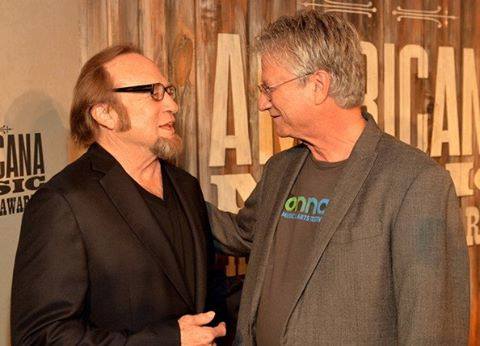
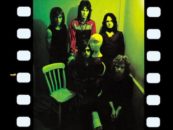
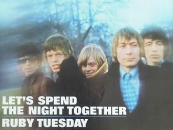
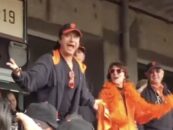
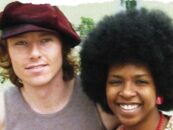

2 Comments so far
Jump into a conversationWent to Richie’s church for a service circa 1999, I had been inspired by him from 1967. He remains inspiring in 2015. One of America’s treasures.
This is a very nice interview. And I ‘ve learned one or two new positive things about Richie. And he states in this interview that ” I see us slipping away because we’re not talking to one another. We’ve become so polarized. That’s my thing – come on, let’s just come together”. But if you look on Richie’s FB page he continually blames the liberal side for everything, and makes them out to be the enemy. He is not bringing us together. He is repeating all the hate rhetoric that you see on Fox news and Breitbart. He is unfortunately not telling the truth.